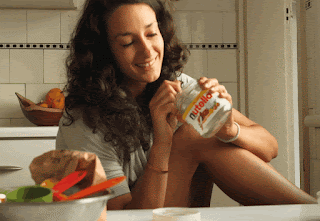A few years ago, I contacted Layne Mosler, founder of TaxiGourmet.com. I admired her taxi journals and the search for New York City's best food joints by the city's very own cabbies. I knew Cape Town would be a great place to explore the city's diverse culture, stories and places to eat. Food is not only a shared necessity, but I thought a unifying tool for positive interaction and meaningful conversations. Highlighting taxi cab driver's tips and favourite spots, could promote a broader awareness, respect and appetite for the cultural diversity and flavours in our city. Since then, I have met various cab drivers and digested delicious food and interesting stories that come from various parts of the country and Africa.

Today, I sat on the steps of Darling St. and Plein St. with Eti, an independent taxi driver. He shared some thoughts about Cape Town, his struggles and happiness and where a vegetarian, like himself, goes to eat Cape Town's best burger.
It was past lunch time, and the streets were full of Saturday shoppers. Four young men were playing "Beautiful Girl" on trombones and trumpets with a growing crowd of afternoon spectators. While Eti waited for customers he told me that making a living on four wheels gives him happiness and minimal stress.
"To work for yourself is very good. I like people and I enjoy being a taxi driver."
His jovial smile and sociable manner matched the slogan painted across his white taxi: Meet as Strangers, Leave as Friends. Eti has been an independent tax cab driver for four years. He arrived in Cape Town, South Africa from Burundi, in 2000. He left his birth country, Burundi, as a young man to avoid being forced to fight in the army.
"I came by ship to Zambia," he proclaimed, "I came to seek peace."
He crossed Lake Tanganyika, the world's longest fresh water lake in the world, to escape the war in Burundi. Four days later, he arrived in Cape Town to meet his brother and cousins who had settled here.
"Cape Town is my home city, no doubt. But my refugee status is the only problem. It's like you're in prison. When my father passed away I couldn't leave because of my refugee status. This makes me sad. If I wanted to leave and go on holiday, maybe Mozambique or Zambia, I can't."
A person with refugee status in South Africa can lose their refugee or asylum status if they leave the country without permission from The Ministry of Home Affairs. Applying for asylum in South Africa involves applying for a permit/Section 22 every three months until their application is approved. The permit does not recognise a person as a refugee, it is simply proof that they have applied for the status. If the application is approved, then the person will receive a refugee document ID and travel documents, which have to be renewed every two years.
Before Eti became a taxi driver in Cape Town, he worked as a security supervisor in Groot Constantia near Jonkershuis Restaurant.
"The owner of Jonkerhuis, Chris, is a good friend. He is a good person to me. I know him because I was looking after his business when I worked in security."
He shared his thoughts about Cape Town and what makes it different from where he grew up.
"It's a city with a lot of different people and different countries. Even the city authorities care for the people in the Mother City."
In the winter season, taxi cab drivers work longer hours to meet their daily quota. For Eti, he parks his taxi close to one of his top three lunch spots.
 "Eastern Food Bazaar has everything; Asian, Pakistani, Indian. I like the fried rice. I'm a vegetarian," he proclaimed. "It's keeps you strong, and it keeps me healthy.
"Eastern Food Bazaar has everything; Asian, Pakistani, Indian. I like the fried rice. I'm a vegetarian," he proclaimed. "It's keeps you strong, and it keeps me healthy. His second choice on where to eat in Cape Town is Jonkershuis.
"I eat their burger." He confessed that the burgers are so tasty that even a vegetarian would eat them. :)

"I also eat at the Nigerian restaurant on Loop St near the Pepper Club. I enjoy the bitterleaf soup."
"I'll definitely try that!" I answered.
I asked him what else he wanted to tell people visiting or living in Cape Town.
"Instead of people being afraid of Cape Town's city or the taxi drivers, they must trust us," Eti added.
This sentiment is shared by many independent Cape Town taxi cab drivers. Besides finding cabbie's recommendations for Cape Town's restaurants and cafes, sitting down and listening to stories of Cape Town cabbies highlights our culturally-plural and complex city. It promotes an exchange of ideas, reveals global topics and issues and promotes a greater understanding of our city and fellow citizens. Many cab drivers in the Cape Town continue to share and access the best of what the city has to offer and like Eti, reveal their happiness and peace by calling Mother city their home.
_______________________________________________________
*names have been changed.
On May 25th, 100 in 1 Day, a festival of doing was activated in Cape Town with over 100 urban interventions/activities/installations, etc. Taxi Cab Lunch, was an intervention to motivate people to Taste, Share and Explore the city through the eyes of Cape Town's cab drivers.













